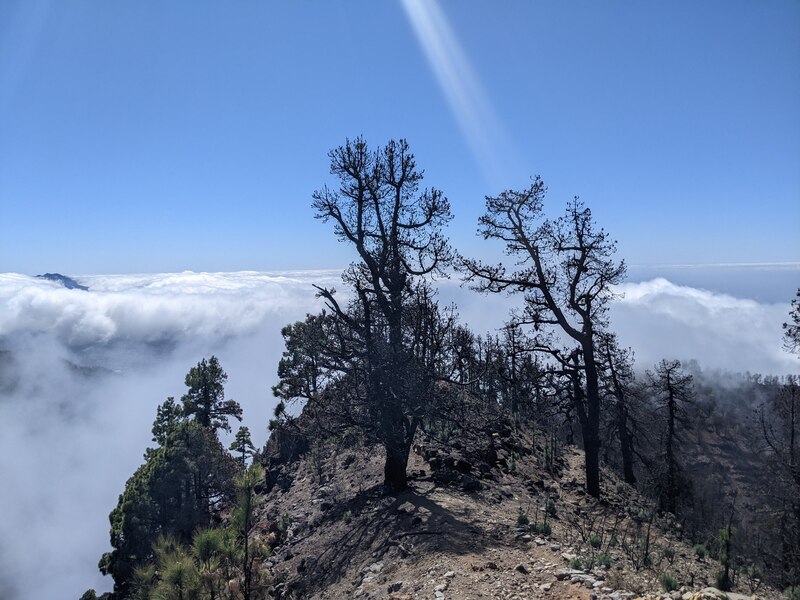La Palma Science School - 2024

Science School on La Palma: An Immersive Journey into Island Ecosystems
Imagine spending 14 days on the beautiful island of La Palma (Canary Islands), not as a tourist, but as a dedicated researcher, delving into the intricate dynamics of island ecosystems. This was the incredible opportunity given to us GCE students as part of the La Palma Science School, a program designed to immerse students in hands-on fieldwork, focusing on Spatial Patterns, Processes, and Dynamics in Island Ecosystems.
Preparation: Setting the Stage for Research
Our journey began long before we set foot on La Palma. In November 2023, our groups were formed (one group consists of 3 people) , and general topics were assigned. This early preparation phase was crucial. Each group worked diligently to develop a specific research question or hypothesis, grounded in extensive literature research. We formulated our research concepts, deciding on the relevant variables and the instruments needed for measurement. These thorough preparations ensured that we could hit the ground running once we arrived on La Palma. During this time, we worked independently in the groups and presented and revised our study idea in the 2-3 preparatory meetings we had with our supervisors Carl Beierkuhnlein and Anke Jentsch.
Arrival and Orientation
Upon arrival, the first 1.5 days were dedicated to getting to know the island through a guided tour by Carl Beierkuhnlein. This tour provided us with essential background information, setting a solid foundation for our research. On the third day, we transitioned from orientation to action, beginning our independent work in small groups.
Fieldwork: Data Collection and Daily Routine
Fieldwork on La Palma was intense and immersive. Each day, we set out around 8 AM, returning to our accommodation by 6 PM. Our days were spent in various research areas, meticulously collecting data. The field sheets for documentation were prepared in advance, enabling efficient and organized data recording. Evenings were dedicated to digitizing the collected data, planning for the subsequent days, and participating in lectures.
Report written by Mara Popp, student in Global Change Ecology

